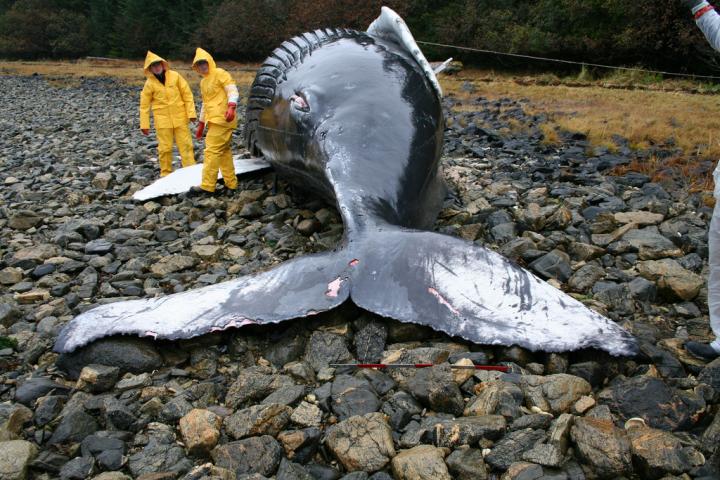Solar storms might be the answer to the age-long mystery of why whales and some other sea creatures get stranded on beaches.
This relationship will be explored for the first time in a collaboration between NASA, the International Fund for Animal Welfare (IFAW) and the federal Bureau of Ocean Energy Management (BOEM).
Videos by VICE
Antti Pulkkinen, the astrophysicist heading the project from NASA’s Goddard Space Flight Center in Maryland, said the project will address a long-standing question in marine mammal studies about why beachings happen, killing otherwise healthy animals. Could irregularities in solar activity—like solar storms—mess with the navigation of whales, dolphins and other sea mammals, confusing their internal compasses and leaving them stranded?
Read More: Why Do These Whales Keep Rubbing Themselves On The Same Beaches?
Lots of different animals use the Earth’s magnetic field to navigate, and it’s thought that certain marine mammals do it, too. This could help explain beaching. “There are some theories on why these animals beach in large groups, but not very good, solid explanations,” he told Motherboard. “One of the potential explanations that people have proposed is that since these animals use magnetic fields for navigation, magnetic anomalies could contribute.”
The researchers will use several sets of information to see if there’s a statistical anomaly: they’ll take data from IFAW and BOEM to track beachings, then use information from NASA’s fleet of heliophysics missions and databases to see if there’s a correlation between the two.
If the findings—which the researchers hope to have available for peer review in September—do find a statistical correlation, Pulkkinen said, they can begin other studies to understand “the physical mechanism through which the space weather has some influence on beachings.”
While it’s not like they can stop solar storms or control space-weather phenomena, it might help them in developing measures to protect these animals.
Get six of our favorite Motherboard stories every day by signing up for our newsletter .




